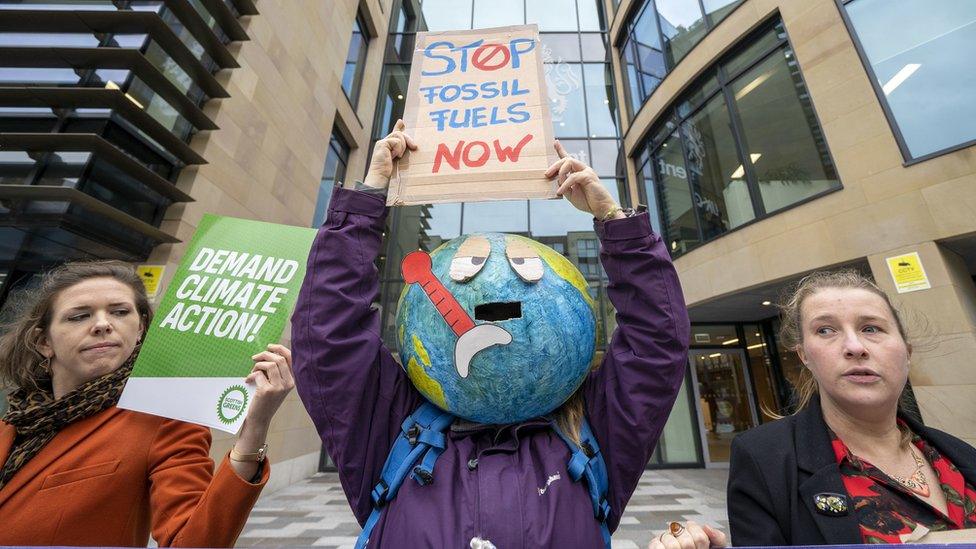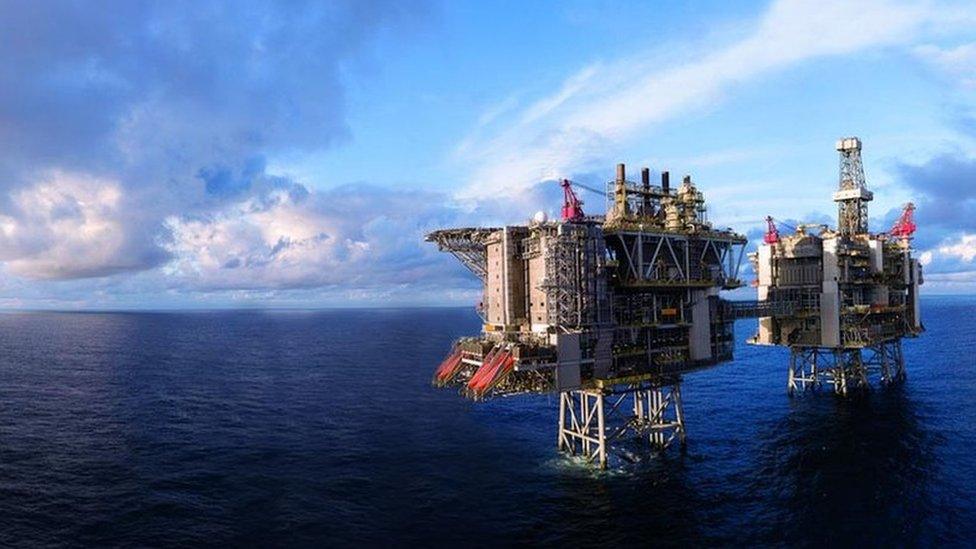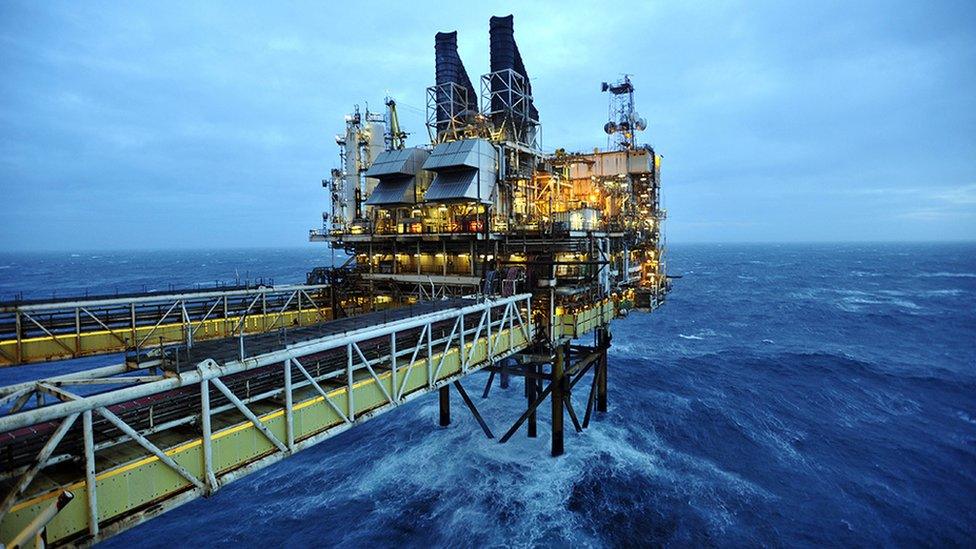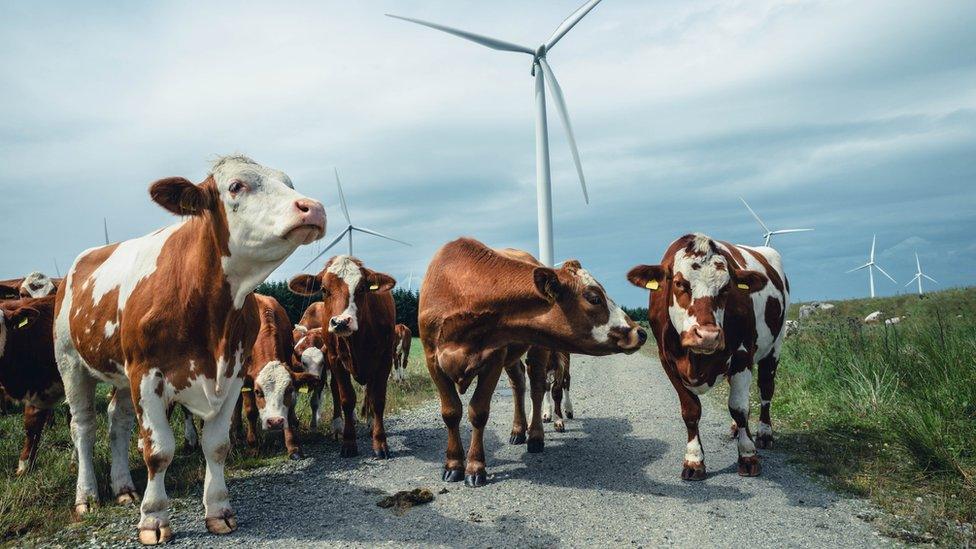Leaders grapple with the politics of Rosebank oil field
- Published

Campaigner protest the new Rosebank oil field outside a government building in Edinburgh
For the second week in a row, the politics of climate swirl again.
In his big green speech last week, the prime minister said his government would be "brave" in its decision making and focus on what was in the long term interests of the country.
But such interests, politically, are always in the eye of the beholder.
The prime minister has welcomed the approval of the Rosebank oil and gas field.
Critics accuse the government of recklessness. Rishi Sunak argues he is being pragmatic.
This drilling isn't expected to lower bills in the UK, but a state seen as rogue - Russia - weaponising fossil fuels, has transformed one element of this debate.
And most accept Russia's invasion of Ukraine gives the argument about energy security much, much more clout.
But one figure steeped in the politics of climate change suggested to me that Mr Sunak ought to be more candid about the trade off here - improving the UK's energy security, but allowing more greenhouse gas emissions.
Scotland's First Minister, the SNP leader Humza Yousaf, argues the approval dilutes incentives for energy companies to transition to renewables.
The UK government claims it will boost their investments in them.
And then there is the Labour Party - whose position on all this is as important as it is fascinating.
Critics accuse Labour of weakness - not having their cake, and then eating it anyway - Keir Starmer insists he's being responsible in both opposing this approval but saying a Labour government would respect existing licences that have been granted.
Opposition parties, in normal times, don't have agency. They can talk, but not do.
But, a year-ish from the general election, with Labour miles ahead in the opinion polls, their view on this does matter to whether it happens.
A categorical refusal to allow the project to proceed under a Labour government could squash it right now.
But the party's judgement - in its quest for economic credibility and political stability - is that would be wrong.
And so Rosebank is on.
Related topics
- Published27 September 2023

- Published27 September 2023

